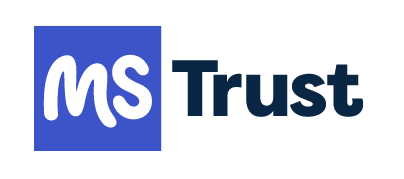Before you watch this webinar
Enhancing your learning experience begins with understanding you better. Collecting data enables us to tailor our educational content specifically for our audience. Discover more about how we handle your information in our Privacy Policy.
Event
Running group clinics remotely: IT and governance challenges
Our sponsors


CPD accreditation
This webinar has been approved by the Federation of the Royal Colleges of Physicians of the United Kingdom for 1 category 1 (external) CPD credit(s). To claim the credit please email hughskelton@neurologyacademy.org
The webinar covers:
- Frameworks about the Information Governance temporary arrangements during COVID and longer term.
- Can experience from remote individual patient management and virtual consults via Attend Anywhere apply to group clinics?
- What are the key benefits of Virtual Group Clinics?
- Are remote group clinics actually worth your effort?
Presentation slides
Presentation slides
Presentation slides
Summary
Group clinics offer all manner of benefits, including cost savings. But while telemedicine has become the mainstay for individual consultations over the last year, extending it to group clinics has been slower.
Dr Gordon Mazibrada’s team usually runs a variety of group DMT discussion sessions but have not yet done this remotely. The clinics, established to educate patients on living with the condition and its possible treatments, were very well received, he said.
“How will we do this in the future? I don’t know,” he said, adding that the Attend Anyway video consultation platform may provide an answer.
He went on to highlight a press release from NHS Wales, released in December. It announced that virtual group clinics were to be rolled out in specialities including diabetes, musculoskeletal conditions, and rheumatology.
“Neurology is not listed at the moment, but I'm sure it's coming” said Gordon.
Remote patient care
Covid has accelerated the pace of digital transformation in the NHS, but many of the arguments pre-date the pandemic, said Dr Martin Wilson.
“If you look at the traditional outpatient model, we know a lot of appointments are unnecessary, or they happen at the wrong time for the patient, and that a lot of clinics finish late,” he said, explaining that this impacted on both clinical and patient experience.
A 2018 report from the Royal College of Physicians said a fifth of pensioners who attended an outpatient appointment said they felt worse after because of the stress of the journey. What’s more, 5% of all road traffic in England is NHS-related. There is a better way, said Martin.
He offered a number of tips for conducting virtual clinics:
- think about access and technological limitations on both ends
- video isn’t always the best option – only use it when it can add value
- make a plan B – can you switch to another platform if need be?
- think about the limitations of virtual clinics – do you need a face to face appointment?
Virtual MDT
Martin also explained that the move to virtual multidisciplinary team (MDT) meetings, using Microsoft Teams, had been “very successful”.
“We don’t use it for clinical appointments, but Teams is very good for MDT meetings,” he said.
Using the platform, MDTs can view and edit documents, work on them collaboratively, and log the outcomes. It is easy to invite people from outside the organisation to join them, and the whole MDT can message each other updates.
Martin’s service also uses Teams for some educational clinics, including fatigue and newly diagnosed courses.
Coming out of Covid, he said, the challenge will be understanding what balance of virtual and face to face appointments to strike.
Digital inclusion
As digital transformation accelerates, there is increasing debate about using technologies like apps and wearables for monitoring.
“Digital exclusion is a real issue. We say everyone's got a smartphone, but not everyone who has got one knows how to use it,” said Martin, adding that platforms such as Attend Anywhere were not suitable for everyone.
Data from 2018 shows that one in five people do not have the digital skills needed to access care in this way. Risk factors include being older, living with disabilities, and speaking English as a second language.
“People with a disability are 35% less likely to have those skills. Although it is a minority, it is a significant one so whatever we do we need pathways that deal with those issues.
“That includes getting better access, improving skills and confidence – which include staff – and designing our digital solutions in a sensible way.”
Funding, logistics, and governance
The pandemic has made teams more focused on essential care and emergency governance has enabled the large-scale establishment of remote services to protect continuity of care.
“It showed us what we could do quickly, in terms of completely transplanting services from one hospital to another within days. That would have taken years before.
“I think it's also taught us that you can't do everything remotely – we just don't have the tools – and that we probably don’t want to.”
The pandemic has also forced a welcome change in attitudes towards funding virtual clinics, said Martin, explaining that there had not been “adequate reimbursement” until last year. There is still some way to go, however.
“Hospitals have been very much paid to see people in a face-to-face appointment. Unless you change that there is no incentive for flexible follow up, to see the patient where it would best suit them.
“We need to change that,” he said.
Are remote group clinics worth your effort?
Professor Klaus Schmierer discussed how running a research-driven group clinic might work in practice.
Talking about a recent pre-project education session, Klaus explained that feedback forms showed participants were happy with all elements of the programme – apart from the cost and inconvenience of getting to London.
“It's essentially asking for a remote solution,” he said.
That said, there are questions we need to answer before we can understand the value of group clinics. Do group sessions improve quality in terms of outcome measures and social capital; do they save time and / or money; and do they help achieve higher goals, asked Klaus.
Our sponsors


Chair
 Dr Gordon Mazibrada
Dr Gordon MazibradaConsultant neurologist, Queen Elizabeth Hospital Birmingham
Speakers
 Prof Klaus Schmierer
Prof Klaus SchmiererProfessor of neurology and consultant neurologist, The Blizard Institute, Queen Mary University of London & The Royal London Hospital of Barts Health NHS Trust
 Dr Martin Wilson
Dr Martin WilsonConsultant neurologist & deputy chair, The Walton Centre NHS Foundation Trust & NHSE Neurology CRG
Encouraging excellence, developing leaders, inspiring change
MS Academy was established in 2016 and in that time has accomplished a huge amount with exciting feedback demonstrating delegates feel inspired and energised along their personal and service development journeys. The various different levels of specialist MS training we offer are dedicated to case-based learning and practical application of cutting edge research.




